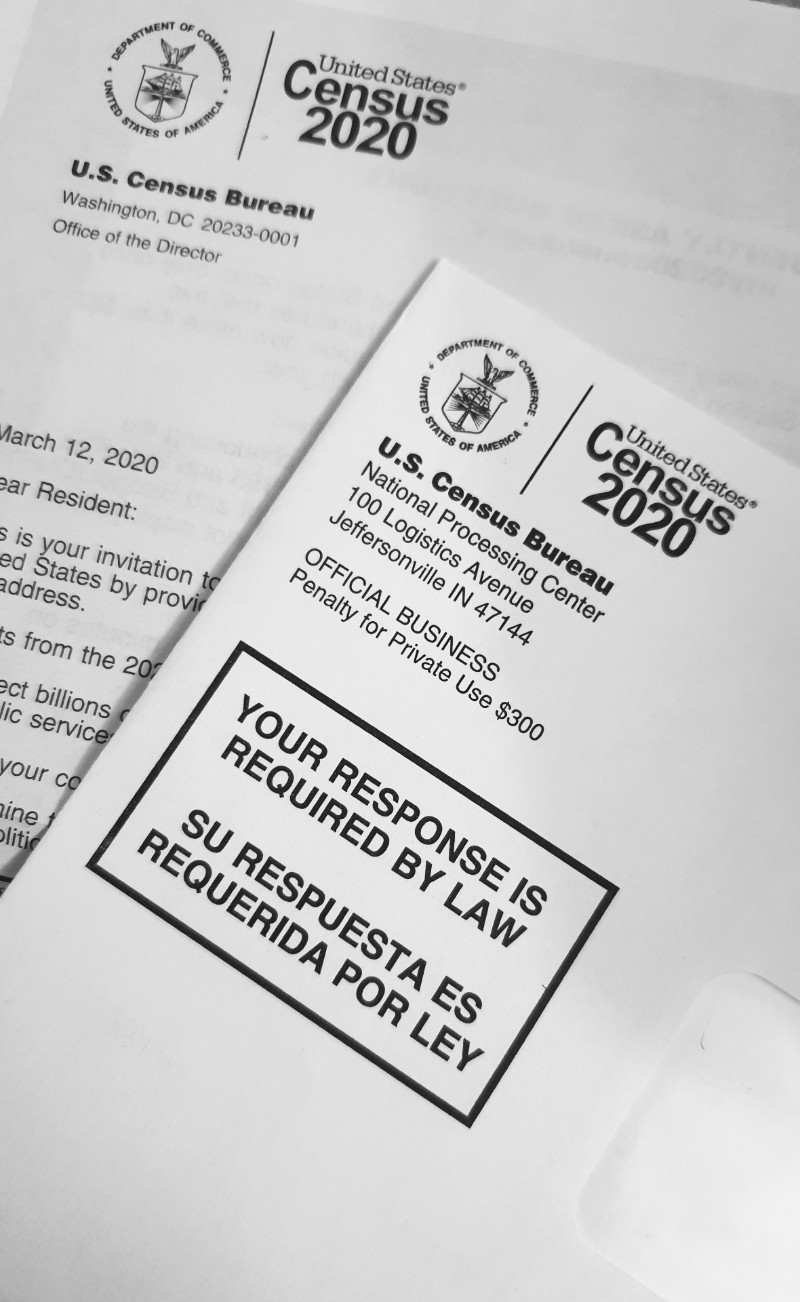The InVisionary
Have you been counted?
By now, you’ve probably received an envelope in the mail containing instructions for completing the census. “Census Day” was April 1, and if you haven’t done it yet, now would be a good time to get started.
It’s understandable if something seemingly insignificant may escape your mind, especially during the challenging times in which we’re living right now, but completing the census is important for everyone, and even more so for people with disabilities.

The census impacts daily life in the United States more than you might think. For example, census data determines how federal funding is allocated among our communities for special projects and services, and it also affects how many elected representatives each state sends to Congress.
At face value, it might not seem like the census does anything monumental, but it’s actually a big deal. Without an accurate count, some crucial federal programs may go under-funded, and not enough members in Congress means fewer seats at the table advocating for your community’s specific needs.
Remember: Only one person per household should complete the census, and only the people who live and sleep at the home most of the time as of April 1, 2020 should be counted. Make sure to talk with the other members of your household about who will complete the census before responding.
Your responses to the census are protected by law. The Census Bureau collects data only to produce statistics, and they do not disclose your personal information. Everyone should feel safe completing the census.
Keep in mind, your response to the census is also required by law. That means if you don’t complete the census, a census taker will come to your home sometime over the next several months to collect your response.
And be vigilant about potential fraud or scams regarding the census. The Census Bureau provides resources for recognizing and avoiding fraud.
Unfortunately for people with disabilities, they’re at a disadvantage. They’re one of the most underrepresented groups in the country, and that makes it especially difficult to ensure the programs on which they rely will be adequately funded. An inaccurate count means that some programs won’t have enough money, and their most important provisions could even be cut entirely.
If you’re a DSP, have a conversation with the person or people you support about the census, why it’s so important to complete, and that you’re there to help. Guides for completing the census are available to download that you can share with the person or people you support, and they even come in large print, braille, and American Sign Language (ASL).
By now, you’ve probably received an envelope in the mail containing instructions for completing the census. “Census Day” was April 1, and if you haven’t done it yet, now would be a good time to get started.
It’s understandable if something seemingly insignificant may escape your mind, especially during the challenging times in which we’re living right now, but completing the census is important for everyone, and even more so for people with disabilities.
What is the United States Census?
The census is a Constitutionally-mandated count of all living people in the United States. It must occur every 10 years. The last census was in 2010.
The census impacts daily life in the United States more than you might think. For example, census data determines how federal funding is allocated among our communities for special projects and services, and it also affects how many elected representatives each state sends to Congress.
At face value, it might not seem like the census does anything monumental, but it’s actually a big deal. Without an accurate count, some crucial federal programs may go under-funded, and not enough members in Congress means fewer seats at the table advocating for your community’s specific needs.
How do I complete the census?
The envelope you likely recently received in the mail will contain instructions for completing the census, and you can do it online, over the phone, or through the mail.Remember: Only one person per household should complete the census, and only the people who live and sleep at the home most of the time as of April 1, 2020 should be counted. Make sure to talk with the other members of your household about who will complete the census before responding.
What kinds of questions will be on the census?
The census asks basic demographic questions like your name, age, gender, and race. It will also ask about the relationships between the household residents and information about the home like whether it is rented or owned and its type (like if it’s a mobile home or apartment).Your responses to the census are protected by law. The Census Bureau collects data only to produce statistics, and they do not disclose your personal information. Everyone should feel safe completing the census.
Keep in mind, your response to the census is also required by law. That means if you don’t complete the census, a census taker will come to your home sometime over the next several months to collect your response.
And be vigilant about potential fraud or scams regarding the census. The Census Bureau provides resources for recognizing and avoiding fraud.
Why it’s especially important for people with disabilities to complete the census
Many programs that benefit people with disabilities and help them live independent lives—like Medicaid, the Supplemental Nutrition Assistance Program (SNAP), and housing vouchers—are funded through the federal government. An accurate count through the census guides the government’s decisions for how and where money gets spent.Unfortunately for people with disabilities, they’re at a disadvantage. They’re one of the most underrepresented groups in the country, and that makes it especially difficult to ensure the programs on which they rely will be adequately funded. An inaccurate count means that some programs won’t have enough money, and their most important provisions could even be cut entirely.
If you’re a DSP, have a conversation with the person or people you support about the census, why it’s so important to complete, and that you’re there to help. Guides for completing the census are available to download that you can share with the person or people you support, and they even come in large print, braille, and American Sign Language (ASL).
What should I do if I have questions about the census?
Please visit the census website, their FAQ-specific website, or call 1-800-923-8282.Next Post
April 27, 2020





Comments (0)